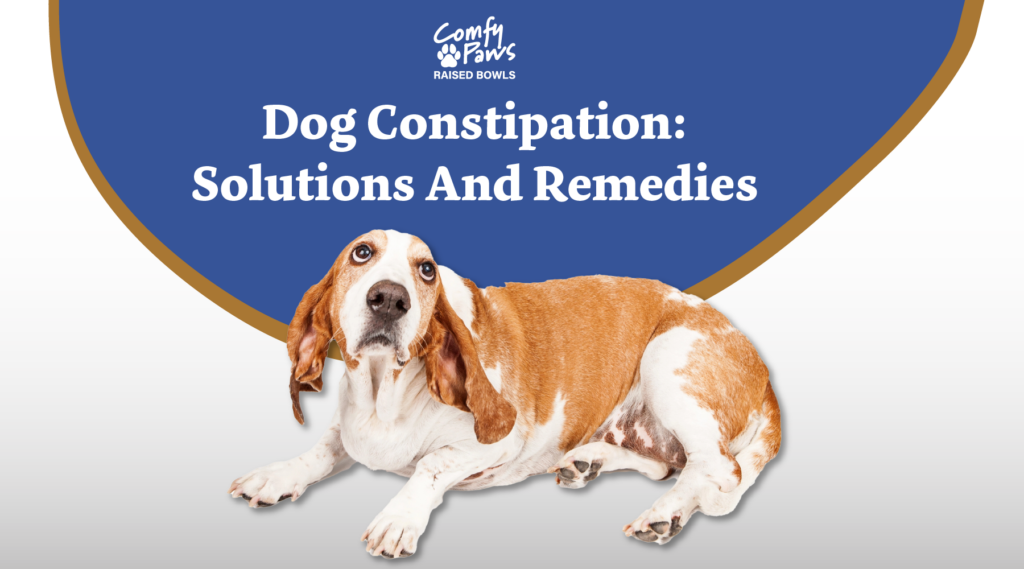Dog Constipation is never nice, and it’s hard to see your pet feeling uncomfortable.
Constipation can happen for various reasons, but thankfully, there are some solutions you can try to remedy the situation.
Extreme Constipation
Of course, if it is a severe case of constipation, we recommend you see your vet immediately!
If there is a chronic issue, it can cause permanent damage to the gastrointestinal (GI) tract.
Signs of extreme constipation include:
- Vomiting
- Not Eating
- Severe Discomfort (pacing, licking stomach, straining, panting)
- Blood in their stool
- Distended stomach (seems bloated and larger than usual)
- Weakness and lethargy

Home Remedies
There are several home remedies you can try if you’re looking for solutions for your furry friend. However, if these are not working, consult your vet and check other options. Your dog may need an in-person examination, especially if it shows more severe symptoms.
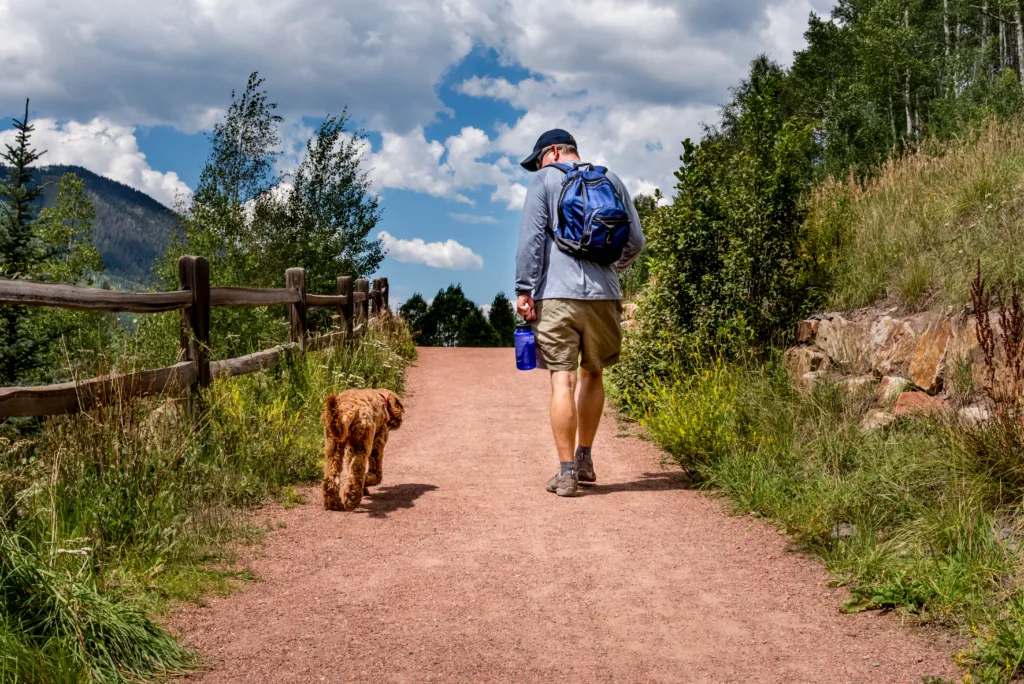
Take A Walk
Exercise helps with movement in the GI tract and stimulates stool movement.
Take your dog on an extra walk in the morning or afternoon to help them get some activity.
Take short walks often, and it might just do the trick!

More Fiber
Introduce some more fiber into your dog’s diet. Some people use psyllium (e.g., unflavored Metamucil®).
However, you may want to discuss this with your vet so you know how much to administer to your pet. Canned pumpkin is another popular option.
Add one teaspoon of pumpkin to a small dog’s dinner and a tablespoon for a larger dog. (Make sure it’s 100% pumpkin and not pumpkin pie filling!)
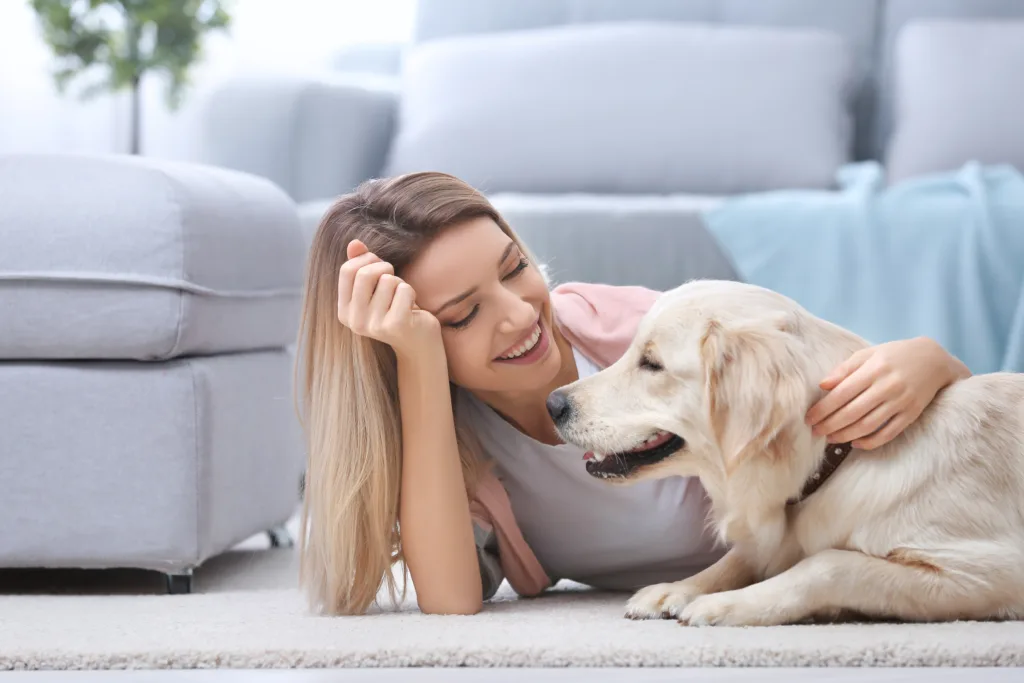
Check Your Pet
We suggest checking your pet’s bottom to ensure no dried mats or clumps are in the way. Dogs with longer hair especially struggle with this issue. Thick, dried mats can make it difficult, if not impossible, for your dog to poop. If you see anything in the way, remove it carefully with electric grooming clippers.
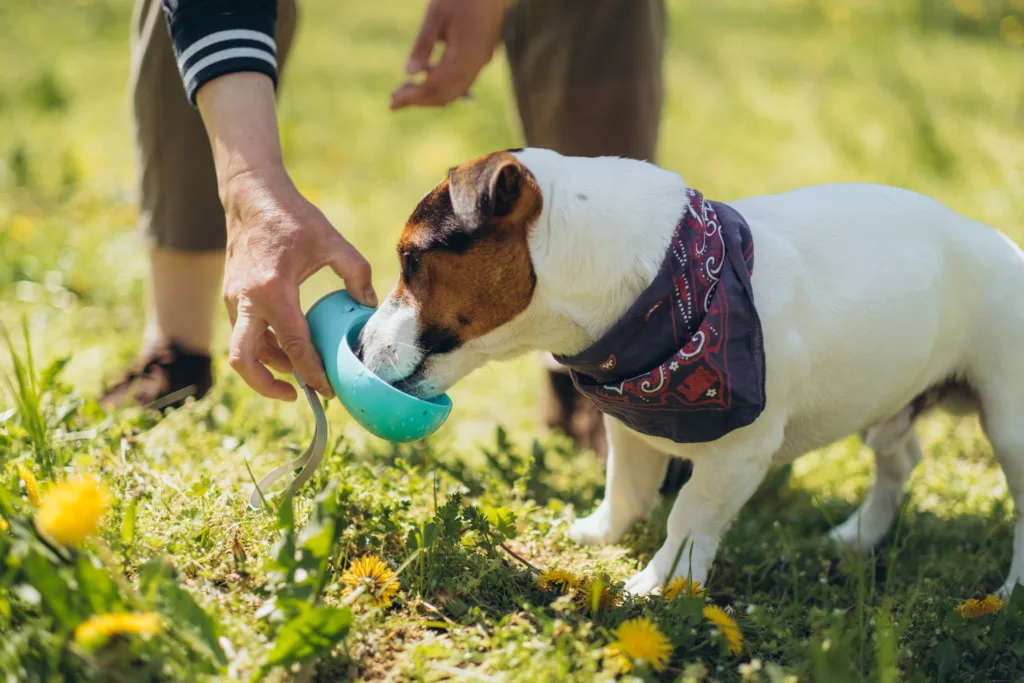
Work On Hydration
It could be possible that your pet needs more liquids. Dehydration can happen when your pet isn’t drinking enough water. This results in the hardening of stools, and consequently, constipation. Make sure your dog has access to lots of good, fresh, water. Consider buying a dog water fountain or raised dog bowl to make it easier to hydrate. A raised dog bowl is especially helpful for senior pets or pets with other mobility issues.
Things You Should Not Do
Do not attempt to give your pet an enema at home unless your vet has directed you to do so. Many laxatives are not safe for pets, so avoid them unless you can chat with your vet. They can guide you to the proper dosage so your pet does not experience dehydration and diarrhea.
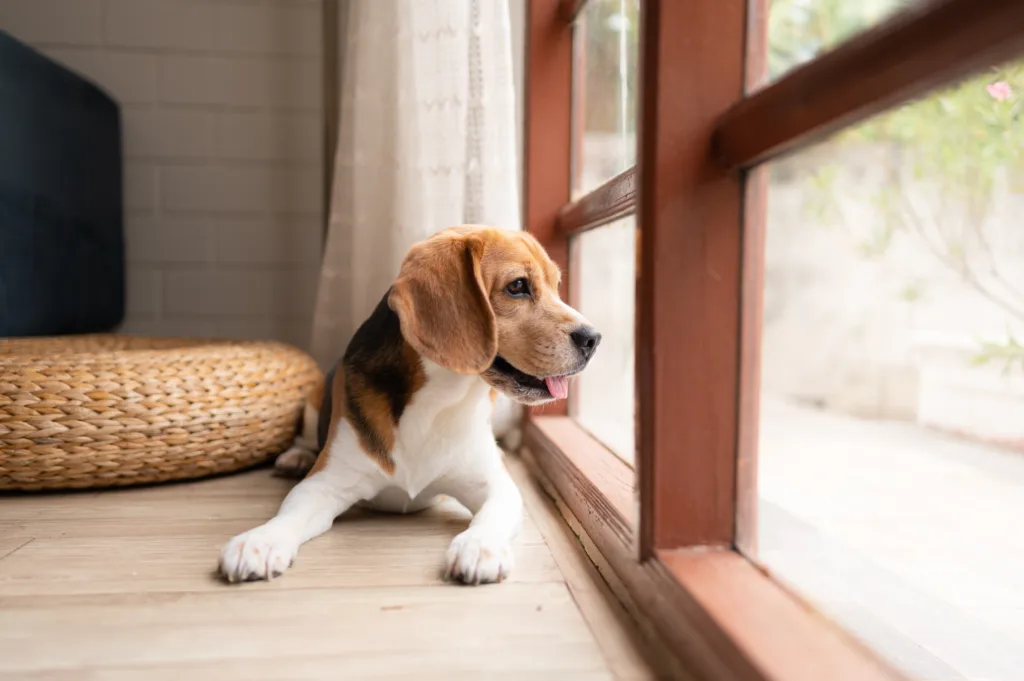
Have your questions about dog constipation been answered?
Feel free to browse our other dog health posts to learn more about how to care for your precious pet!

